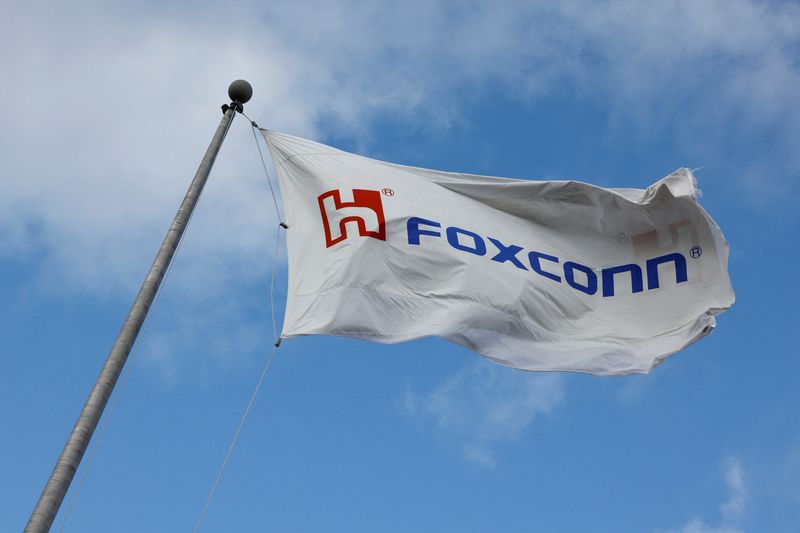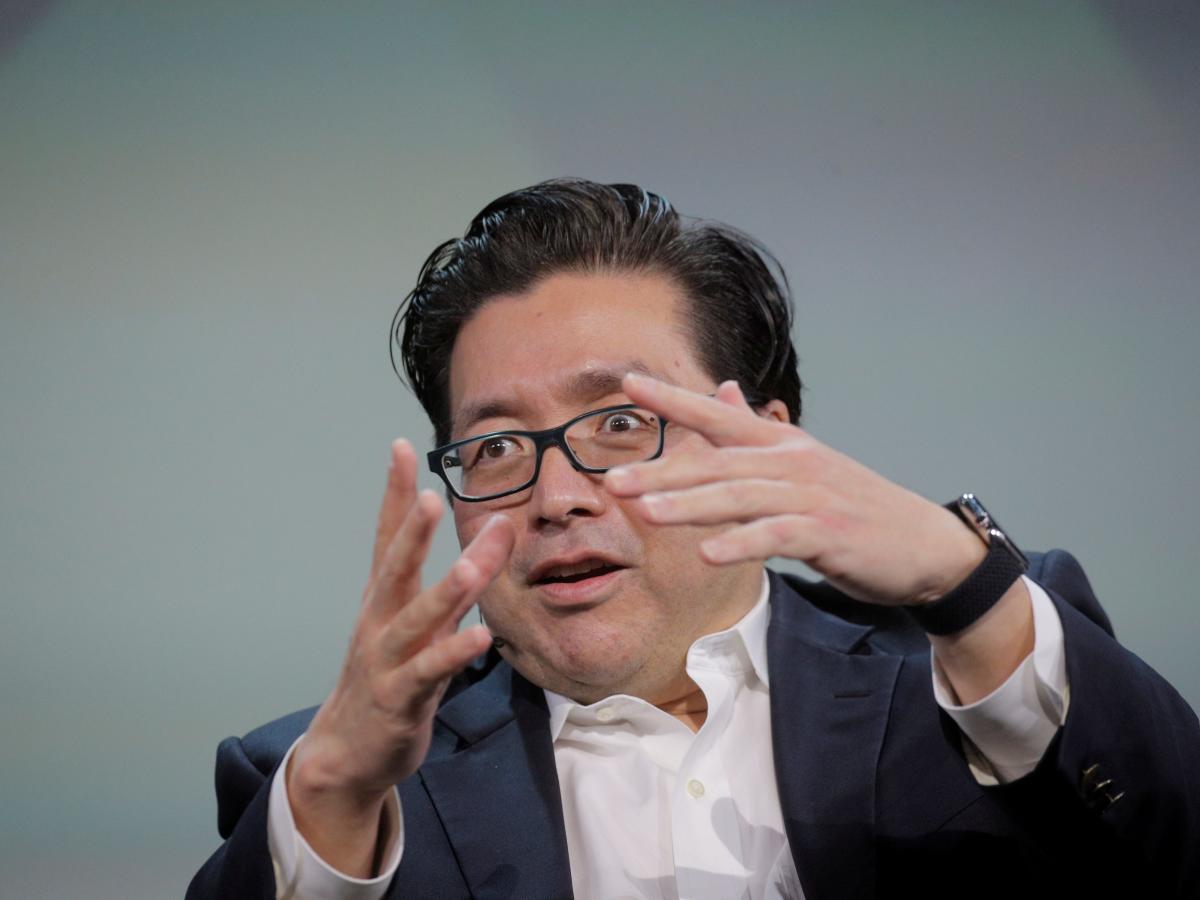[ad_1]

© Reuters. FILE PHOTO: A Foxconn flag is seen at the company’s electric vehicle production facility in Lordstown, Ohio, U.S. November 30, 2022. REUTERS/Quinn Glabicki/File Photo
2/3
By Sarah Wu and Ben Klayman
TAIPEI/DETROIT (Reuters) – Foxconn wants to do for electric vehicles (EVs) what it has done with the iPhone, but first, it needs to find the next Apple (NASDAQ:) – and fast.
The Taiwanese contract manufacturer faces competition in the market for creating white-label EVs that can be tailor-made for clients, whether that’s a major automaker or a delivery provider or any other company.
And while the electronics giant brings established strengths to the mostly loss-making EV industry, Foxconn needs to win a big contract to prove it can ride the wave of disruption, analysts say.
Foxconn, formally called Hon Hai Precision Industry Co Ltd, will provide an update on its EV manufacturing business when it reports results on March 15.
“The results of many of our collaborations will be realized one after the other in 2023,” the company said in a statement to Reuters. “The demand for EVs is driving industry disruption where prominent traditional automakers have and are pivoting to finding solutions for mobility that are cleaner and smarter.”
The company’s proposition is simple: let us build your next EV. It is developing a specialized supply chain, including chips and batteries, and has acquired the former General Motor Co plant in Lordstown, Ohio. It has also hired a former Nissan (OTC:) executive, Jun Seki, to lead its efforts.
For now, by building in Ohio, Foxconn can offer customers access to U.S. federal incentives under the Inflation Reduction Act, Daiwa Capital Markets analyst Kylie Huang said. That’s a selling point as traditional automakers juggle building gasoline-powered vehicles with plans to build their own EV capacity.
“If they don’t get one this year, next year will be more difficult,” Huang said of Foxconn’s search for an EV contract with a traditional automaker.
Failure to “catch this wave” could force Foxconn to vie with lower-tier Chinese automakers who might switch to EV contract manufacturing and compete on cost, Huang said.
Canada’s Magna International (NYSE:), a top auto supplier, already builds cars for others, and China’s Geely has expressed interest. China’s Guangxi Automobile Group has started to make EVs on contract for Japanese delivery company, Sagawa Express Co.
Foxconn is counting on its Mobility in Harmony EV platform, or MIH, to win customers. It calls MIH “the Android system” for EVs and is soliciting partners in an effort to standardize technologies so model variants can be developed quickly and cheaply.
“We want to create that kind of ecosystem so anyone – for example, like United Airlines – can say, ‘I want to make a car,'” Foxconn chief product officer Jerry Hsiao told Reuters during a tour of the company’s sprawling Ohio plant.
“Sooner or later, maybe the top, traditional (automakers) say, ‘Hey, I want to become a product marketing company. Why do I need to carry so many employees?'” he said.
Hsiao also worked on the first Android phone for Google (NASDAQ:) and now sees EVs at a similar commercial inflection point.
Foxconn’s ambitions are aggressive. Initially targeting 5% of the global EV market and the equivalent of $33 billion in revenue from manufacturing EVs and components by 2025, Foxconn’s longer-term goal is to make nearly half the world’s EVs.
EV sales have been rising, led by China. Five percent of the market, assuming an EV adoption rate of about 20% by 2025, would be around 900,000 vehicles, roughly what market-leader Tesla (NASDAQ:) sold in 2021.
‘NOT MAKING IPHONES’
“In the EV market, everyone’s eyes are bigger than their stomach,” said Sam Fiorani, vice president at AutoForecast Solutions.
His firm estimates Foxconn hitting about 65,000 vehicles in 2025 and 157,000 in 2026. “They’re not making iPhones here,” he said.
EV outsourcing will reach $36 billion in 2025 and $144 billion in 2030, with 800,000 and 3.2 million EVs, respectively, Goldman Sachs (NYSE:) estimates.
Key for Foxconn will be scoring the first big customer to anchor its Ohio plant, which currently builds a small number of electric Endurance pickup trucks for Lordstown Motors, in which it owns a stake. It has announced plans to build a vehicle for EV startup Fisker.
Foxconn Chairman Liu Young-way told reporters last month he plans to visit U.S. customers, Foxconn’s Ohio plant and Mexico, where Foxconn has made significant investments in auto parts, in March or April.
“There should be some related signing activities,” Liu said.
Foxconn already supplies parts to Tesla and makes camera modules for automakers and suppliers.
“They can probably buy things cheaper than anyone on earth,” Raymond Tsang, a Shanghai-based partner at consultancy Bain & Company, said of Foxconn.
The race for volume in an industry where Tesla and other EV makers are cutting prices raises the stakes.
The former GM plant in Ohio that Foxconn purchased from Lordstown Motors is one of the highest volume single-line vehicle assembly plants in the world. It could build about 320,000 vehicles a year, excluding overtime.
Foxconn wants to build around 300,000 EVs at the plant, Ian Upton, director of production control at Foxconn Ohio, told Reuters.
“We would love to find a customer that’s in the 250,000-or-so range and then we can fill up some of the other stuff with niche type things,” he said.
[ad_2]













